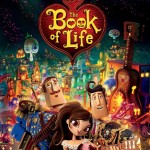Most witches and pagans are polytheists – or agnostic to greater or lesser extents. I’ve yet to meet anyone who calls hirself a pagan that is monotheistic, at least not in the way that anyone of the Abrahamic faiths would recognize. Plenty of people I know have patron deities or are henotheistic (honoring one god to the exclusion of the rest, yet acknowledging that other gods do exist). For a while I thought I tipped into the polytheistic non-dual (a description I first heard from T Thorn Coyle). In my mind that was a radical interpretation of monotheism, but I may have trying too hard to keep with in a Christian framework. A few nights ago a passing two sentences in a Feri initiate’s private blog got me thinking: what if the gods aren’t Gods? What if the gods are just little g gods? A form of entities different to us, bigger than us, but subject to their own forces and to the Ultimate Ground of Being, much like we are?
Victor Anderson said ‘God is Self and Self is God and God is a person like myself.’ That always rubbed me the wrong way. I didn’t make any sense in my theological understanding. I can talk endlessly about the potential of divinization of the human person. I believe, firmly and utterly, in the inherent goodness, fullness, and dignity of the core of humanity and all of creation. I believe that humanity carries the spark of the Divine within, the breath of Life is present in each breath we take. ‘God is Self and Self is God.’ I believe this was part of what Jesus Christ was trying to teach us; I think this is what Tantric Hinduism is getting at. We are not separate. The Holy Mother who is the Ground of Being, that from which all of creation came and to whom everything, everyone returns, is our Creator. We are part and parcel of the wider whole. Recognizing this – knowing it in all our parts – is the goal of enlightenment and is liberation.
I may know this key to enlightenment with my brainy bits, but I certainly haven’t grasped it in my entirety. I’m not sure I can and still parent small children. I’m not sure I could handle the depths of compassion that embracing the Entirety of All would require. Hell, I still pat myself on the back when I laugh at my 3-year-old accidentally dumping a half-gallon of milk all over the floor, rather than swear and yell and grumble. I’m not sure I’m ready to embrace the power that being in concert with the G/gods would take. Baby steps, right?
So if we are not separate from the Ultimate One, then what’s all this talk about gods – plural? What’s with polytheism?
When I read the Iliad in school we discussed ancient Greek culture and talked about the gods. This was filed away under Mythology and Primitive Belief and we assumed that no one really believed in them then, nor does anyone now. From the generic Judeo-Christian point of view, who would dare believe in gods that were just as petty and ridiculous as us ‘mere’ humans. If those Greek gods were real then I thought the stories were demeaning, indeed. But I think I get it now. The gods are like us, only they are not of our material. Whether you want to think that the gods exist in a different parallel universe (like in the movie Thor, where they say that their world is different enough from ours that we think them gods) or maybe you like the idea that maybe they exist at a different frequency that we just can’t readily perceive (like how certain insects see colors we don’t), the issue is one of perception and understanding, not one of reality.
Until I moved to Wales I felt pretty agnostic about the gods. Were they just symbols? Projections of our best selves? Archetypes? How could all these different families be simultaneously real? I mean, the Greeks, Norse, Yoruba, and Celtic pantheons seem to have some overlap, but also seem to be their own coherent systems. How could they all be true? I’ve since learned that the Gods are real. I liken this experience to learning to kiss (or have sex). When I was a pre-teen and had my first kiss, I remember thinking, ‘THIS is what the big deal is about??’ A few years later I kissed some one else and discovered, oh my, yes, that is exactly what the big deal is all about. The same thing happened with ritual and the gods. Sure, I’d been to ritual – I’d even had a great time and quite enjoyed myself! But then, I circled with two other witches in Wales, on a dark, damp Welsh night and oh my. I discovered that the Gods are real. The Arddu showed up, swept through the front door and front hall and into the living room. He looked around, smiled amusedly, and went on his way. That experience has changed me. It wasn’t intimate. He didn’t pass along any knowledge. There was no exchange of pleasantries. But it was a moment where we met and I realized that this witchcraft stuff is not some figment of an overactive imagination. It’s the doorway to a new way of interacting with the world. The gods are real.
If the gods are people like myself, then the another of the Anderson’s sayings is crucially important: never submit your life force to anyone or anything. This is not saying always be strong, always dominate. This is not some kind of Ayn Rand power trip. This is about maintaining one’s dignity and integrity, one’s sense of Self. There are as many ways to submit one’s life force as there are people and combinations of people. Choosing to serve others is not submission. Even submission in a BDSM context is not necessarily submission in this context. Feri admonishes us not to bow down before the gods. This may seem the height of arrogance to those from other religions. I admit, it felt that way to me too for a long time. We honor the gods, we do not worship. It’s like the technical hair-splitting the Roman Catholics do with the Virgin Mary – hyperdulia (excess veneration) vs latria (adoration, reserved for the Holy Trinity). We can split hairs here too. Am I only honoring the gods? Might there be some adoration in there too? I think the human heart is messy and doesn’t split these hairs as cleanly as our minds would have us do.
Many grimoires and wise, experienced witches and magicians caution us not to worship, follow or even get friendly with just any spiritual being that introduces itself. If the spirit world is made up of a variety of things that are just on the edges of our perception, and if those things are not God Hirself, and if they are like us in any respect at all, then it behooves us to get to know any entity before we offer our allegiance and loyalty – just as we do in ‘real life.’ We do not submit our life force to anything or anyone. We insist on equality, respect, mutual trust and mutual loyalty.
If the different pantheons are different families or nations, like we humans are, what does this mean for syncretism or for finding ‘our gods’ in a relatively godless world? I don’t accept that Yahweh is The God. After years of biblical studies, on devotional and academic levels, I think Yahweh is just a patriarch in his own divine family. In all the years I spent trying to be a Christian, Yahweh never spoke to me, nor did Jesus. I felt a deep connection with something Big, but it never, ever seemed to line up with Yahweh. I never heard much from Jesus either. Listening to that still, small voice has obviously led me away from the Church. Perhaps those guys just aren’t my clan. Coming from a Judeo-Christian culture, but a secular family, I don’t know who my clan is. I’m definitely seeking them out. I read, I think, I meditate, I ask. I think some gods are particular to place. Who will appear when I move to Olympia? Will Ana and Arddu follow me there? Ganesha has made himself right at home with us and he is not ‘of’ Wales. Can a person have a Hindu god as a patron ‘saint’ of the family and still look to Old World European gods?
Changing my thinking about the gods from Big G gods to familial, clan gods has opened up my mind to so many new possibilities. All of a sudden pantheons make much more sense to me. It even helps make sense of Christianity. The gods are people like ourselves: messy, inter-related, powerful, limited, individual, cruel and kind, evolving in this world, all held under the hand of That Which Is. I think ‘polytheistic non-dual’ might still be the best way to sum up my theology at this time. Who knows what I’ll be thinking in a year’s time. Stay tuned.











